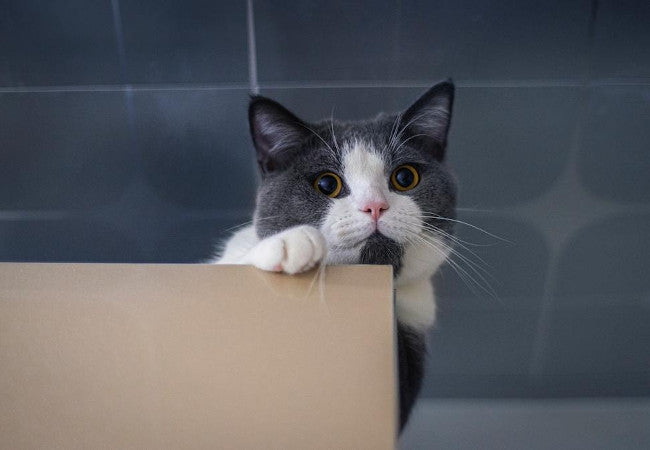Destructive chewing behaviour not only destroys your valuable items, but may also harm your cats' health. Your cats could be chomping away on anything from your favourite sweater to wires for curiosity, anxiety, achy gums, or even a nutrient deficiency.
It can most commonly be managed with apt strategies and patience. Follow along as we share some tips for curbing your cats' destructive chewing behaviour.
Prevent access to unacceptable targets
Be creative about keeping your cats' favourite chew targets hidden. Some items can cause harm to your cats. For example, chewing on wires or items that could cause gastrointestinal upset or electrocution. The best option is to make sure wires/cables are completely covered. You can wrap them with double-sided tape or tape around the areas that are marked "Off limits" to your cats. Cats are not fond of walking in a sticky area or touching tacky surfaces. Alternatively, use a repellent spray (citrus is ideal).
Prevent boredom
Your cats could be chewing out of boredom. Crawl spaces, perches, or catnip toys will help occupy your cats' time. Additionally, try to increase the amount of time you spend playing with your cats by dangling feather toys or tossing balls. Playing with your cats provides them with exercise and enrichment and tuckers them out so they have less time and (hopefully) less desire to chew. And don't forget to rotate toys often to keep your cats from growing bored.
Provide stimulating toys
Not only do your cats need physical stimulation, they need plenty of mental engagement to stave off anxiety and depression. Offer your cats a toy that will bring out the predator, and they will be happy chewing on their "prey" instead of your items. You can also help meet your cats' need to forage by providing toys that deliver treats when moved or swatted. If you're out of the house for a long period of time during the day, leave a variety of self-play toys around. Wall mounted toys, cardboard boxes, and a tunnel will also provide hours of activity and entertainment.
Provide alternatives
If your cats are still chewing, introduce correct chewing by giving your cats appropriate objects that they are allowed to chew or try training them to chew only specific toys. If your cats target fabrics, give them some safe fabric toys that are both interesting and designed for chewing. Also, note that if the chewing is obsessive, it could be due to anxiety. In that case, you may try calming products. Kittens experience teething as they grow. These Pawsome Couture toys are excellent alternatives that can satisfy their chewing needs.
Get veterinary examinations
If nothing you do is relieving the behaviour, it's important to rule out any medical problems or dietary deficiencies with your vet. Chewing in cats can be a sign of periodontal or digestive disease and can stem from a nutritional deficiency.
Source: PetMD

